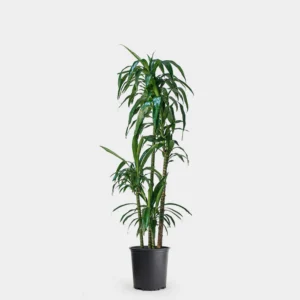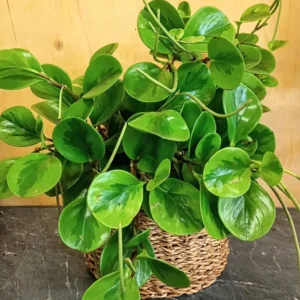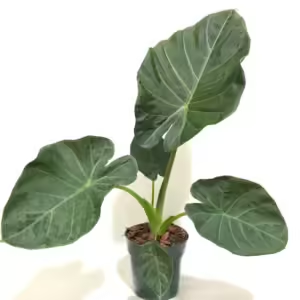Description
Key Features:
- Leaf Structure:
- Hoya obovata has thick, waxy leaves that are oval to obovate (egg-shaped) and can grow up to 4-6 inches long. The leaves are dark green and often have a slightly glossy appearance.
- Flowers:
- Clusters of small, star-shaped flowers appear in umbels and can vary in color from white to pink. The flowers are highly fragrant, especially in the evening, making Hoya obovata a favorite among plant enthusiasts.
- Growth Habit:
- This Hoya species is a vining plant that can trail or climb with support. It produces long, slender stems that can be trained on trellises or allowed to hang down from a hanging basket.
- Air Purification:
- Like other Hoyas, Hoya obovata helps improve indoor air quality by filtering out pollutants and toxins.
Care Tips:
- Light Requirements:
- Prefers bright, indirect light. It can tolerate some morning or evening sun, but avoid harsh midday sunlight, which can scorch the leaves. Insufficient light may slow growth and reduce flowering.
- Watering:
- Allow the top inch or two of soil to dry out between waterings. Water thoroughly when watering, but ensure excess water drains away to prevent root rot. Hoyas are somewhat drought-tolerant once established.
- Temperature:
- Thrives in average room temperatures between 60-80°F (15-27°C). Protect from cold drafts and sudden temperature fluctuations, especially during winter.
- Humidity:
- Prefers higher humidity levels, but can adapt to average indoor humidity. Increase humidity by misting the leaves regularly or placing the pot on a humidity tray filled with water and pebbles.
- Soil:
- Use a well-draining, aerated potting mix. A mix formulated for succulents or orchids works well. Hoyas prefer slightly acidic to neutral soil pH.
- Fertilizing:
- Feed with a balanced, water-soluble fertilizer diluted to half strength every 4-6 weeks during the growing season (spring and summer). Reduce or stop fertilizing in fall and winter when growth slows down.
- Support and Pruning:
- Provide a trellis or moss pole for climbing varieties to support the vines. Prune to control size and shape, and to remove any leggy or damaged stems.
- Repotting:
- Repot Hoya obovata every 1-2 years or when the roots fill the pot. Choose a slightly larger pot with good drainage to accommodate its growing root system.















Reviews
There are no reviews yet.